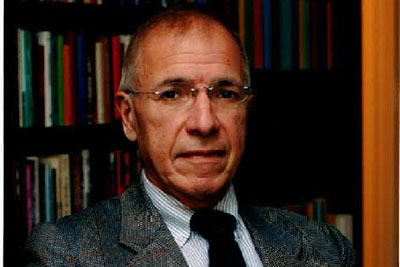
Alejandro Portes is the Howard Harrison and Gabrielle Snyder Beck professor of sociology (emeritus) at Princeton University and professor of law and distinguished scholar of arts and sciences at the University of Miami. He is the founding director of the Center for Migration and Development at Princeton. Portes has taught at Johns Hopkins University, where he held the John Dewey Chair, Duke University, and the University of Texas at Austin. In 1997, he was elected president of the American Sociological Association and served in that role from 1998 to 1999.
Born in Havana, Cuba, Portes immigrated to the United States in 1960. He was educated at the University of Havana, Catholic University of Argentina, and Creighton University, receiving his MA and PhD from the University of Wisconsin-Madison.
Portes is the author of more than 250 articles and book chapters on national development, international migration, Latin American and Caribbean urbanization, and economic sociology. He has published forty books and special issues. Among his books are City on the Edge: The Transformation of Miami (University of California Press, 1993), co-authored with Alex Stepick, which won the Robert Park Award for Best Book in Urban Sociology and the Anthony Leeds Award for Best Book in Urban Anthropology in 1995; and Immigrant America: A Portrait (University of California Press, 2014), 4th edition, which was designated a Centennial Publication by the University of California Press in 1996. His most recent book, Spanish Legacies: The Coming of Age of the Second Generation, was published in 2016.
Portes’s current research focuses on the adaptation process of the immigrant second generation in comparative perspective, the role of institutions in national development, and the comparative study of global cities. In 2001, he co-authored Legacies: The Story of the Immigrant Second Generation (University of California Press) with Rubén G. Rumbaut, and Ethnicities: Children of Immigrants in America (University of California Press). Legacies won the 2002 Distinguished Scholarship Award from the American Sociological Association and the 2002 W.I. Thomas and Florian Znaniecki Award for Best Book from the International Migration Section of the ASA.
His books and articles have been translated into Spanish, Portuguese, Italian, Chinese, and Japanese. Twelve volumes of his collected essays have been published in English, Spanish, and Portuguese. His recent articles have appeared in journals such as the Spanish Sociological Review, Ethnic and Racial Studies, Daedalus, Proceedings of the National Academy of Sciences, International Migration Review, Population and Development Review, and the British Journal of Sociology.
His most recent books include The State and the Grassroots: Immigrant Transnationalism in Four Continents (Berghahn Books, 2015), co-authored with P. Fernandez-Kelly; Spanish Legacies: The Coming of Age of the Second Generation (University of California Press, 2016), co-authored with R. Aparicio and W. Haller; and The Global Edge: Miami in the Sixteenth Century (University of California Press, 2018), co-authored with Ariel C. Armony.
Portes is a former fellow of the Center for Advanced Studies in the Behavioral Sciences and the Russell Sage Foundation. He has received honorary doctorates from the New School for Social Research, the University of Wisconsin-Madison, the University of Genoa (Italy), Roskilde University (Denmark), and the University of Lisbon. He is a fellow of the American Academy of Arts and Sciences and a member of the National Academy of Sciences.
Portes has been elected to Phi Beta Kappa and the American Philosophical Society, the country’s oldest honorary academic organizations. In 2010, he received the W.E.B. Du Bois Career of Distinguished Scholarship Award from the American Sociological Association. In 2012, he was named the James Coleman Fellow of the American Academy of Political and Social Sciences. In 2019, he was awarded the Princess of Asturias Prize in the Social Sciences by the Kingdom of Spain.